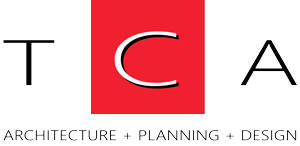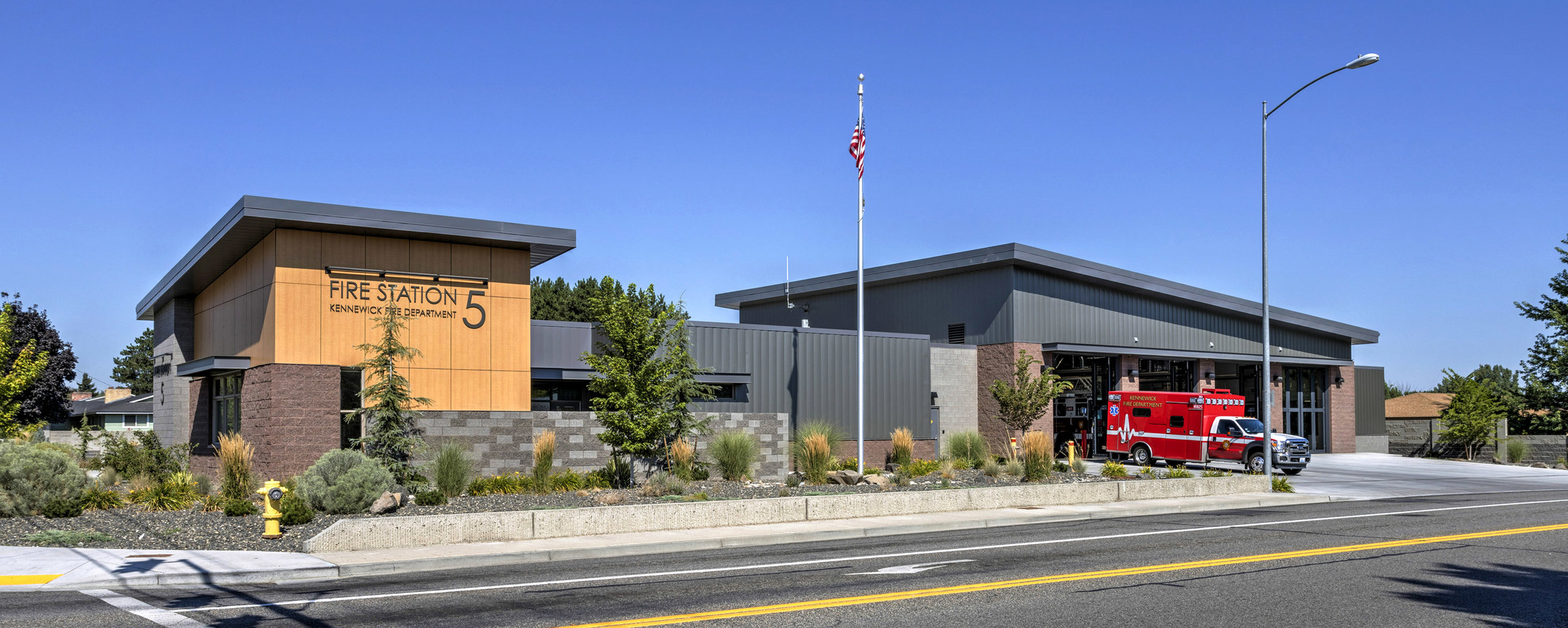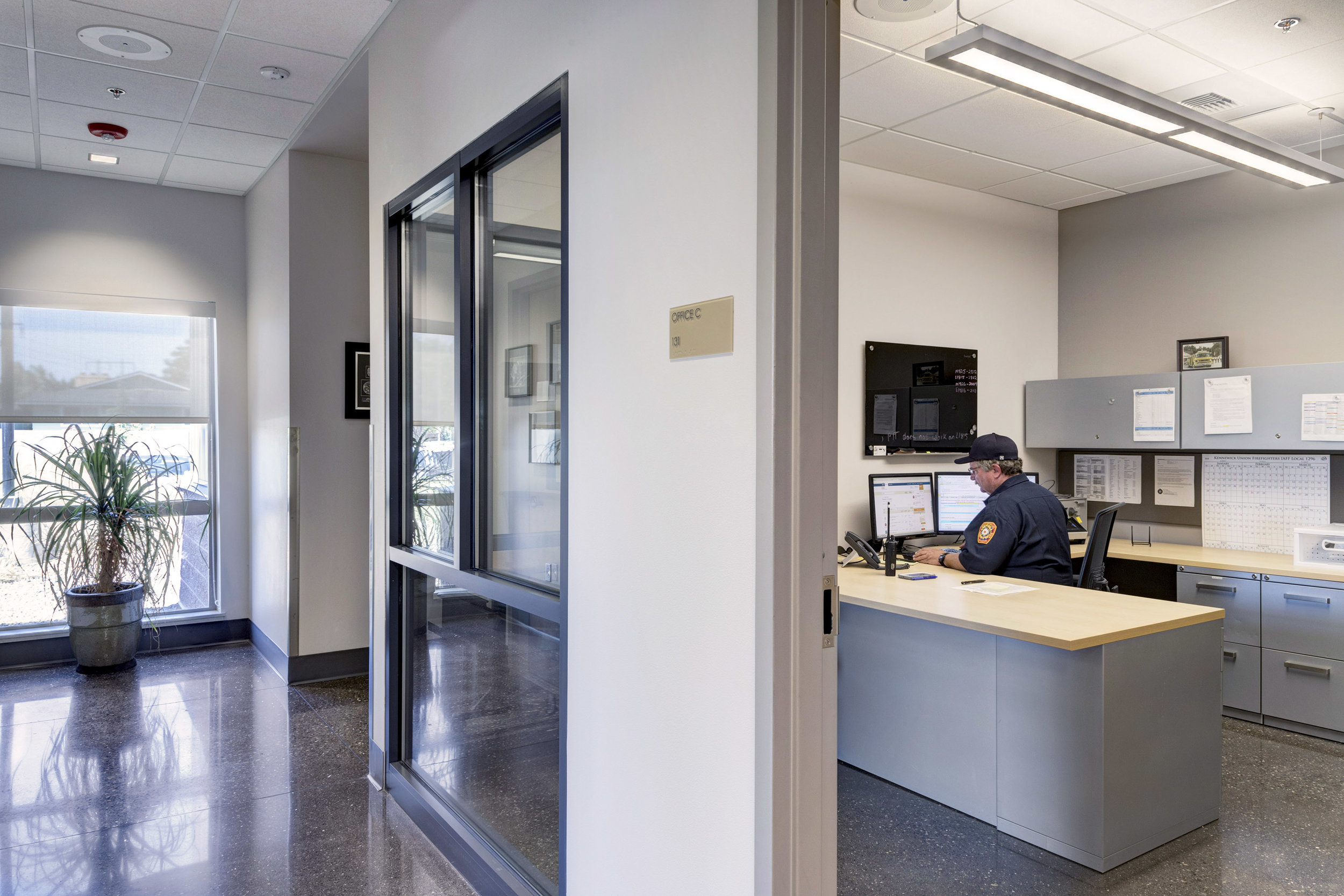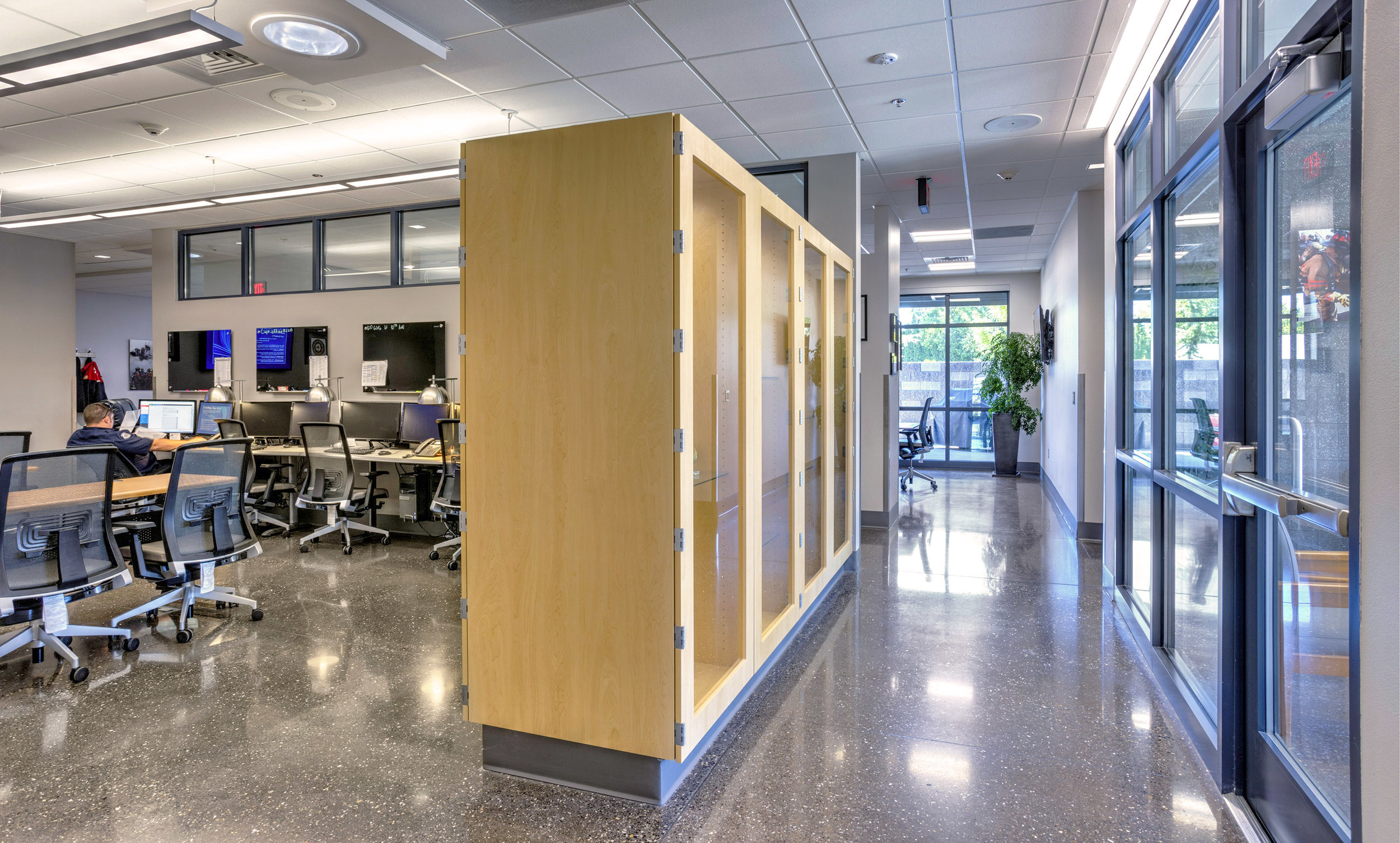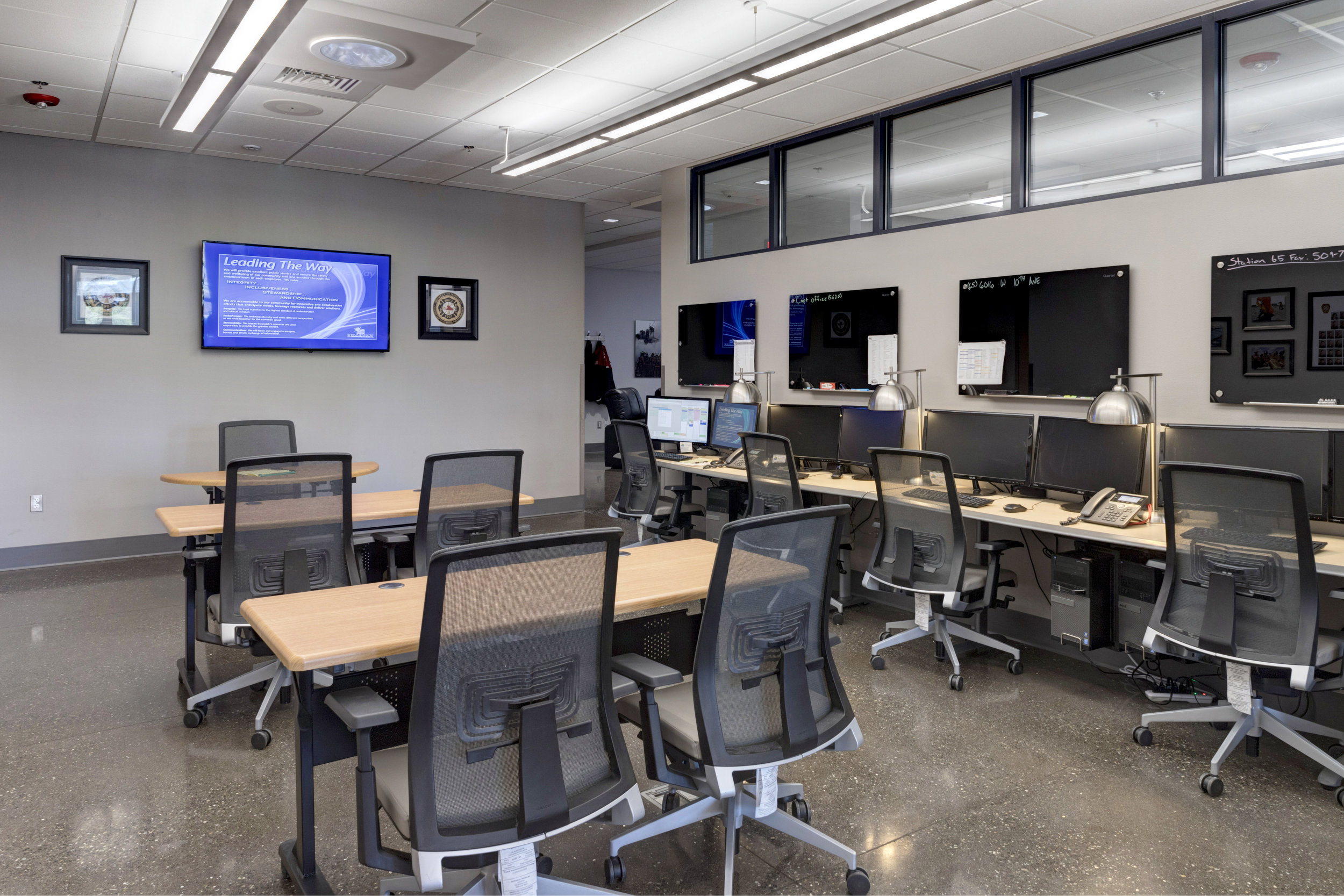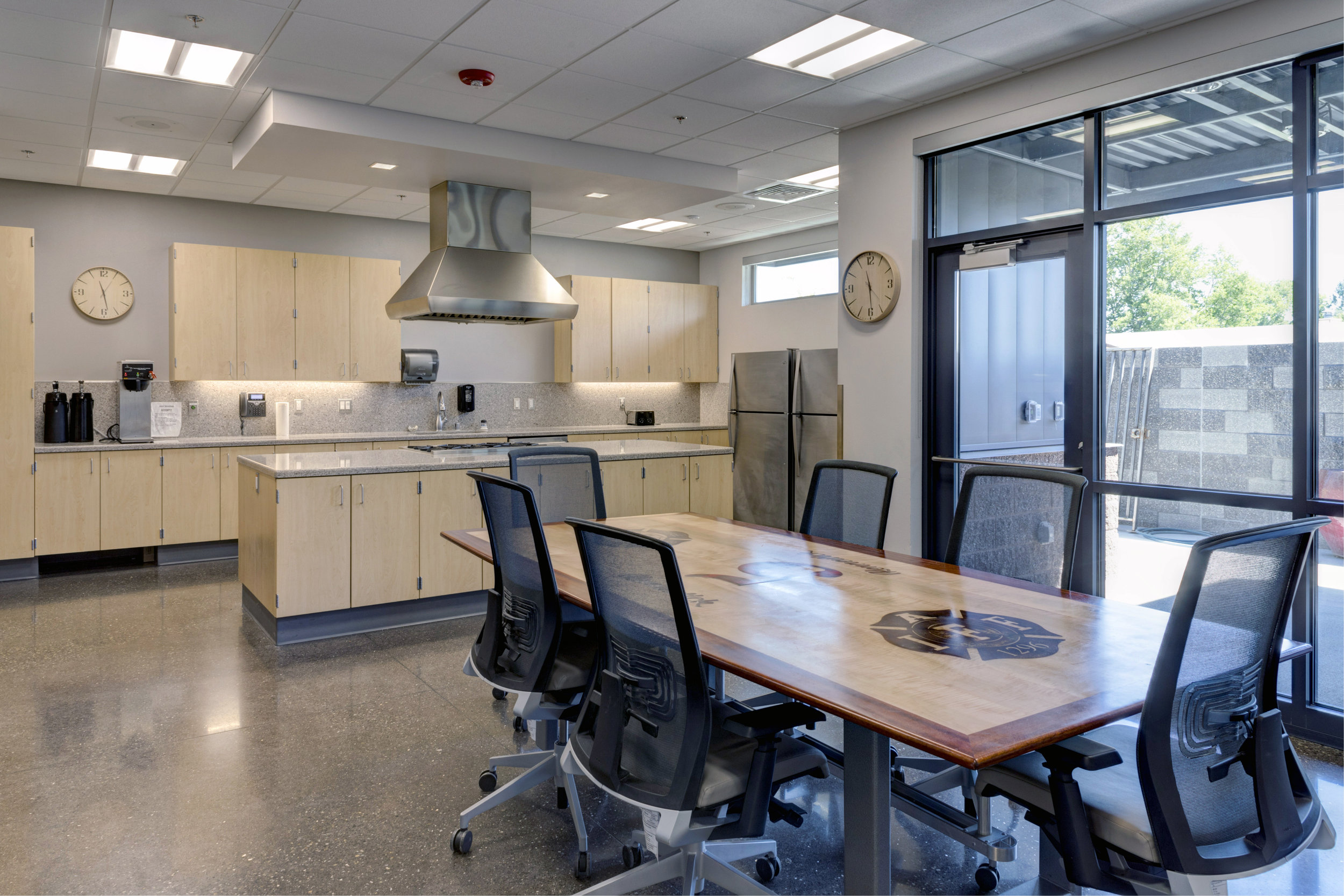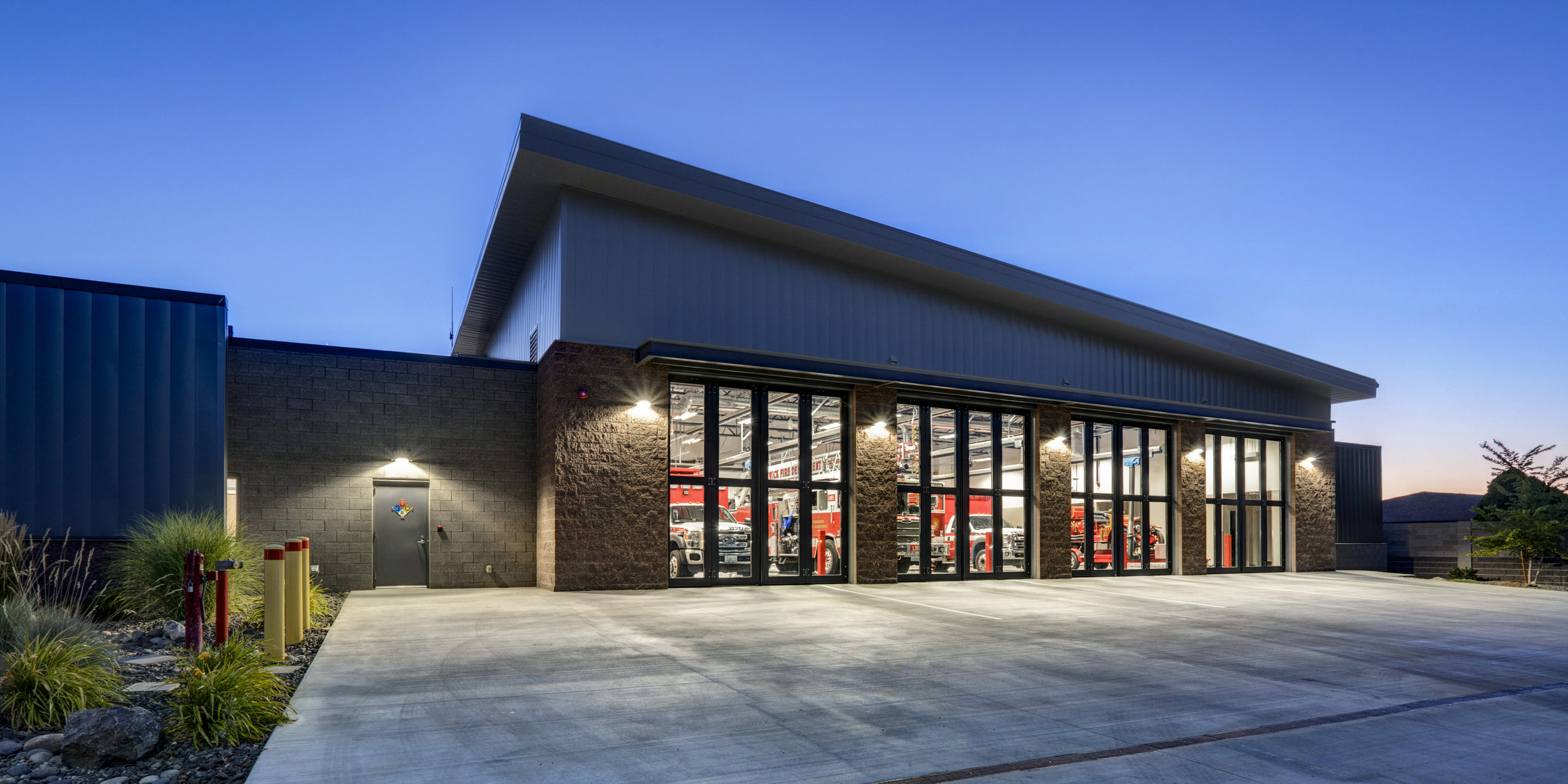Kennewick Fire Station 5
Kennewick, WA
Award Received: Firehouse Magazine Station Design Awards 2018, Gold Award in category Career Station 2
The Tri-Cities, consisting of the Cities of Kennewick, Richland and Pasco, Washington is one of fastest changing regions in the state not just in population but in ethnic, educational and economic diversity.
To support the anticipated growth, in 2014, a fire station design manual including scalable proto-type facilities was developed to provide regional station consistency. The proto-type station allows for flex-space within the stations to address programmatic diversity and individual departmental specialty needs, is expandable to include community rooms, additional bays, and sleeping rooms based on the demands of each target response area.
Kennewick Station 5 is the second station to be constructed based on the proto-type manual with several more stations in the queue. While it is difficult to place a new station in an existing neighborhood, the proto-type allows for scalability by using a kit of parts with material and massing change, so it can fit within institutional, commercial, and residential settings while maintaining a civic presence. The public/crew side of the station includes core features such a secured lobby with an adjacent space which is convertible to an aid room, community police office, or general office expansion, a community meeting/fire department flex space, individual sleeping rooms, gender-flexible shower rooms, a physical fitness area opening to an exterior covered area shared by the dining area for outdoor use, a “clean” laundry room, and easily maintained polished concrete floors. The drive-through apparatus room, with side-acting doors includes decontamination and cleaning facilities connected to a turnout gear storage and drying room, access-controlled delivery room with rated O2 storage, and a toilet room to prevent cross-contamination. Unique to the proto-type is the ability to add air-locks between the apparatus room and living area when desired by the departments and the ability to flip support functions across the bay based on departmental cross-contamination zoning strategies.
